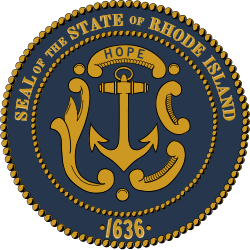| |||||||||||||||||
| |||||||||||||||||
 County results Arnold: 50–60% 60–70% Fenner: 60–70% | |||||||||||||||||
| |||||||||||||||||
| Elections in Rhode Island |
|---|
 |
The 1831 Rhode Island gubernatorial election was held on April 6, 1831, in order to elect the governor of Rhode Island. National Republican nominee and incumbent member of the Rhode Island House of Representatives Lemuel H. Arnold defeated incumbent Democratic-Republican governor James Fenner. [1]

